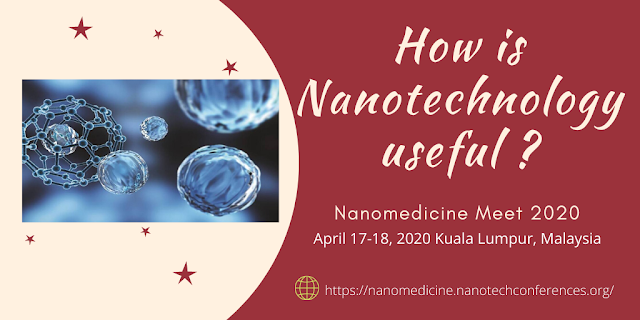How is Nanotechnology useful?
Nanotechnology is a measure
of science and technology about the control of matter on the atomic and
molecular scale. We know that nano deals with matter on an appropriately small
scale - larger than atoms and molecules, but smaller than a breadcrumb.
Nanotechnology is
often named general technology as its advanced kind is having a significant
impact on nearly all areas of industries, technology, research, and development.
It suggestions safer, higher designed and smarter products for infrastructure
industries, agriculture, transportation, and medicine generally. Nanotechnology
will be capable of building products cleanly, cheaply, and rapidly.
Let us look as some uses and applications of Nanotechnology
are:
Medicine: People are doing many dissimilar
types of work in the field of nanotechnology. Most current work looks at the
creation of nanoparticles that
have different properties, such as the way they scatter light, absorb X-rays,
transport electrical currents or heat, etc. Researchers have started developing
nanoparticles to directly deliver drugs to diseased cells. This method will
reduce the damage that is caused due to chemotherapy where healthy cells of
patients are killed.
Electronics: Nanoelectronics
holds some answers for how we would increase the capabilities of physics
devices whereas we have a tendency to scale back their weight and power
consumption. Some of the nanoelectronics areas
beneath development, that you'll be able to explore in additional detail by
following the links provided within the next section, embody the subsequent
topics. Improving display screens on electronics devices.
Food: Nanotechnology
is having an impact on quite a lot of aspects of food science, from how food is
grown to how it is packaged. Companies are emerging nanomaterials that
will make a modification not only in the taste of food but also in food safety,
and the health benefits that food delivers.
Batteries: Batteries
are established using nanomaterials. It is because of this technology that one
battery would be sensible for many years. Batteries are becoming recharged
quicker and expeditiously as compared to traditional ones. Increasing the
available power from a battery and reducing the time required to recharge a
battery.
Fuels: Nanotechnology
will report the shortage of fossil fuels like diesel and fuel by creating the
assembly of fuels from low-grade raw materials economical, increasing the
mileage of engines, and creating the production of fuels from normal raw
materials additional efficient.
Contact
Alan Jane
Program
Manager | Nanomedicine Meet 2020
Email Id: nanomedicinemeet@memeetings.com
Tel: +1-201-380-5561 Ext: 7001




Comments
Post a Comment